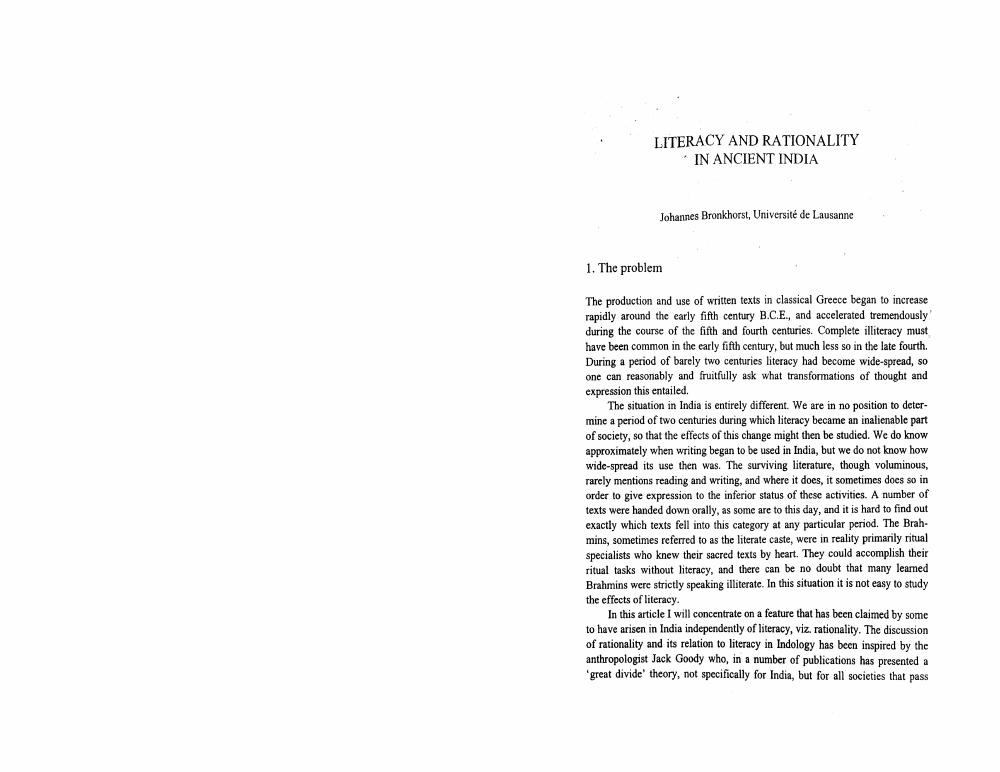Book Title: Literacy And Rationality In Ancient India Author(s): Johannes Bronkhorst Publisher: Johannes Bronkhorst View full book textPage 1
________________ LITERACY AND RATIONALITY IN ANCIENT INDIA Johannes Bronkhorst, Université de Lausanne 1. The problem The production and use of written texts in classical Greece began to increase rapidly around the early fifth century B.C.E., and accelerated tremendously during the course of the fifth and fourth centuries. Complete illiteracy must have been common in the early fifth century, but much less so in the late fourth. During a period of barely two centuries literacy had become wide-spread, so one can reasonably and fruitfully ask what transformations of thought and expression this entailed. The situation in India is entirely different. We are in no position to determine a period of two centuries during which literacy became an inalienable part of society, so that the effects of this change might then be studied. We do know approximately when writing began to be used in India, but we do not know how wide-spread its use then was. The surviving literature, though voluminous, rarely mentions reading and writing, and where it does, it sometimes does so in order to give expression to the inferior status of these activities. A number of texts were handed down orally, as some are to this day, and it is hard to find out exactly which texts fell into this category at any particular period. The Brahmins, sometimes referred to as the literate caste, were in reality primarily ritual specialists who knew their sacred texts by heart. They could accomplish their ritual tasks without literacy, and there can be no doubt that many learned Brahmins were strictly speaking illiterate. In this situation it is not easy to study the effects of literacy. In this article I will concentrate on a feature that has been claimed by some to have arisen in India independently of literacy, viz. rationality. The discussion of rationality and its relation to literacy in Indology has been inspired by the anthropologist Jack Goody who, in a number of publications has presented a 'great divide' theory, not specifically for India, but for all societies that passPage Navigation
1 2 3 4 5 6 7 8 9 10 11 12 ... 18
